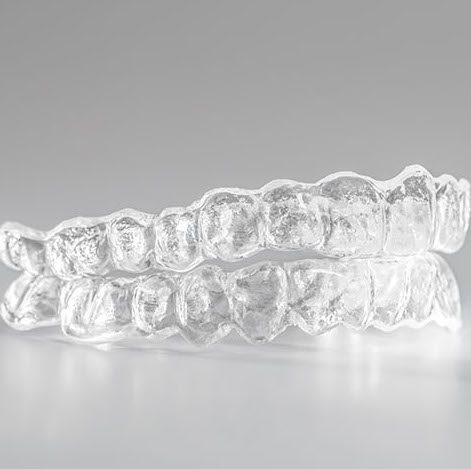Having straight teeth can help boost confidence in your smile and improve the health of your bite. However, many patients suffer from malalignment and malocclusion. With options such as Invisalign in Williamsburg, VA, some patients can now straighten their teeth without the need for traditional braces. While this inconspicuous method for orthodontic treatment can be appealing, it’s important to note that it’s not always the best option for everyone. After examining your mouth, your dentist can help determine if you are a good candidate for Invisalign.

Who Can See Results with Invisalign in Williamsburg, VA?
Invisalign is a great option for patients who want to straighten their teeth discreetly. However, not every patient will benefit from Invisalign or other clear aligners. In order to be a good candidate for Invisalign treatment, you need to meet a few criteria.
Patients with Mild Orthodontic Cases
Invisalign can help treat patients who have mild to moderate misalignment. However, if you have a complicated bite, you may need more extensive orthodontic treatment. The aligners for Invisalign treatment are made ahead of time, meaning your bite is shifted in a pre-designed pattern. But patients who have moderate to severe cases of misalignment or malocclusion may need to make changes to their treatment as they go. In some cases, there’s no way for your dentist to predict how your mouth and teeth will shift. As such, traditional braces are the recommended treatment option to allow your dentist to adjust your treatment as needed.
Patients who are Responsible
Invisalign is a popular treatment option because it allows patients to clean their teeth more easily and maintain a regular diet. This is possible as the clear aligners can be easily removed when eating or brushing your teeth. However, the fact that Invisalign is removable also puts a great deal of responsibility on the patient. Patients who are seeking treatment with clear aligners need to be responsible enough to wear them whenever they are not eating or brushing their teeth. For this reason, some patients may need traditional braces to help ensure success with orthodontic treatment.
Patients with Healthy, Complete Bites
Invisalign works best when patients have a complete set of teeth and a healthy jaw. Restorative treatments such as implants and bridges are not designed to be flexible and likely won’t be treated well with Invisalign. Jaw disorders such as TMJ can also lead to pain and jaw damage if not treated properly while seeking orthodontic care. For patients who have restorations or jaw problems, dentists will likely recommend additional orthodontic treatments to help improve your smile without damaging the mouth.
At Williamsburg Center for Dental Health, we believe everyone has the right to a healthy smile they can feel confident in. If you want to improve your smile, give us a call at 757-216-9873 to schedule a consultation and see if Invisalign is right for you. If not, we can help refer you to an orthodontist who may have additional treatment options that could help your smile.
